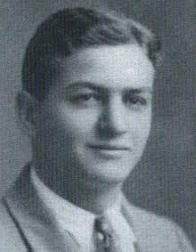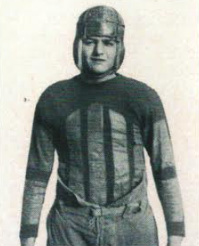
Bill Gitman is the fourth member of the Class of 1926 to be honored by the Stivers Hall of Fame committee, joining Si Burick, Art Troutwein and Herb Schear. Bill played three sports while at Stivers and excelled in football. He was a starting guard on the 1924 team that staked a claim to the national championship by defeating Knoxville, Tennessee, with a score of 7-6 in a post-season game. He was elected captain of the Tigers football squad in 1925. That team won the coveted city championship and played a post-season contest at Pine Bluff, Arkansas.
From Stivers, Bill moved on the the University of Michigan, where he made the varsity grid club and also earned his bachelors of science degree. He then studied medicine at the University of Vienna and the University of Switzerland. In 1936, he married fellow medical student, Dr. Edith Jaegendorf in Lausanne, Switzerland.
Gitman served three years as a medical corps captain in the Army, an assignment that he wished upon himself by writing a personal letter to President Roosevelt after he was turned down for being overweight. In June of 1943 he was stationed in the South Pacific with the 43rd Division. He participated in the Munda-New Georgia campaign and saw service on Guadalcanal and Savo Island.
He returned to Dayton and became a successful physician and surgeon. He never lost touch with sports and was active in the promotion of the national bike races then held in Dayton and the Golden Gloves boxing organization. Among other things that the doctor did was to promote professional basketball one winter.
Bill was one of the key figures in the annual Doctors-Lawyers baseball game played each year for charity. One season he managed the Doctor’s team and played first base in a game that packed Hudson Field. it was his popularity with the sports community that aided in his being selected as a Republican candidate for Coroner in a 1948 primary election.
On September 4, 1948, the death of Dr. William Gitman, due to a heart attack, came as a profound shock to Daytonians who had watched Bill grown on the Dayton scene for a quarter of a century since his days at Stivers.


